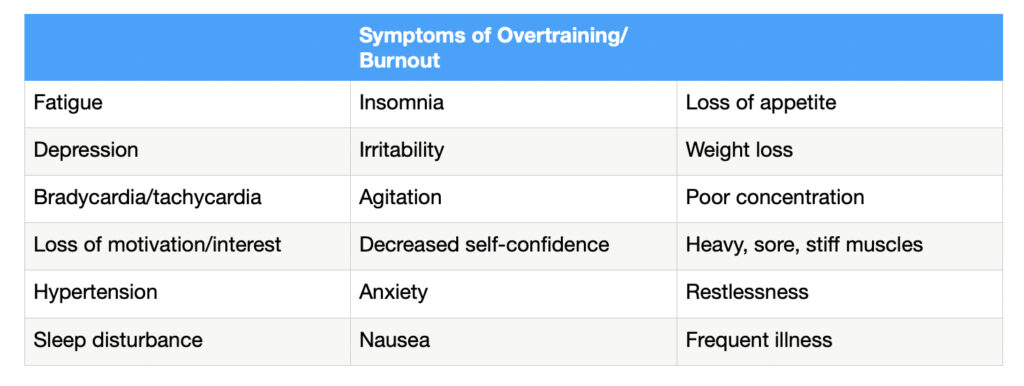
Burnout in Youth Athletes
Burnout in youth athletics is part of a spectrum of conditions that includes overreaching and overtraining. It is defined to occur when chronic stress causes the youth athlete to cease participation in sport. Sports specialization may play a role as youth athletes may withdraw from sport either due to injury or burnout. In children, the psychological component related to burnout and attrition may be related to adult supervised activities.
Overreaching can be classified as either functional or non-functional. Nonfuncitonal overreaching is defined as intense training that leads to a longer period of decreased performance. It may be accompanied by increased psychological or neuroendocronological symptoms. These include physiological and hormonal changes that result in decreased sports performance.
While no specific test or questionnaire currently exists to identify burnout, certain characteristics of sports participation may predispose youth athletes to burnout. These include full participation in a single sport, without participation in unsupervised activities.

Four states of burnout can be described as 1) the young athlete is placed in a situation that involves varying demands; 2) the demands are perceived as excessive; 3) the young athlete experiences varying physiological responses; and 4) varying burnout consequences (withdrawal from sport).
Sports participation that includes a “fun play” may ameliorate anxiety, low self esteem and low personal performance. Excessive athletic stress can lead to loss of sleep, poor appetite, decreased satisfaction with sport, physical injury, low performance and eventual withdrawal. While stress (eustress) is a necessary component of growth (character & sports development), it needs to be appropriately managed.
If your youth athlete is experiencing depression, anxiety and sleep disturbances, consulting a mental health expert (sports psychologist) may help address the underlying issue. While parents may feel vulnerable discussing mental health issues due to social stigma, it is important to understand that mental health experts are properly positioned to get treat psychological disturbances. Think of it like this- if your child broke their arm, you wouldn’t hesitate to take them to the hospital. Speaking with a mental health counselor should be no different. In fact, it is my opinion that positive psychology can have a profound impact of an athletes performance. But that is best discussed with a professional in their field.
From a physical therapists perspective, the workload of an athlete can be monitored, as well as an athletes perception of “play”- keeping it light yet competitive.